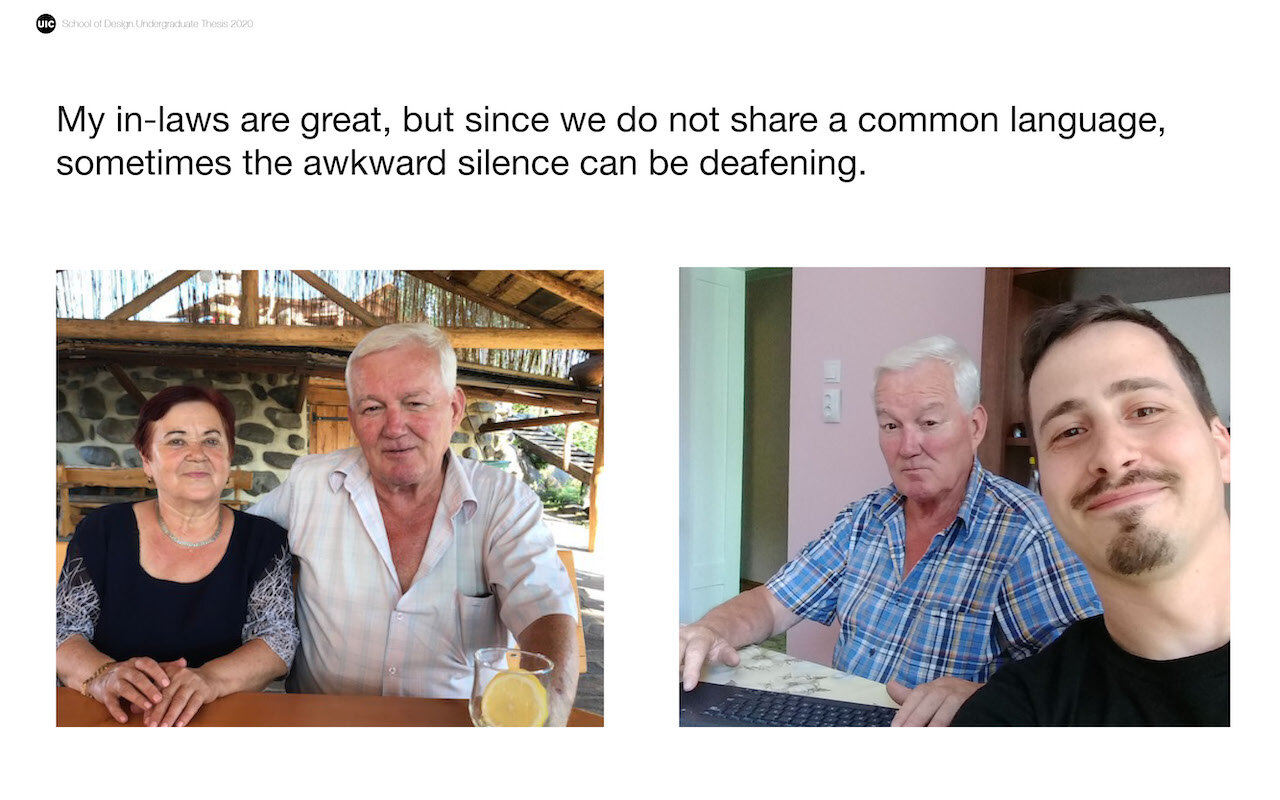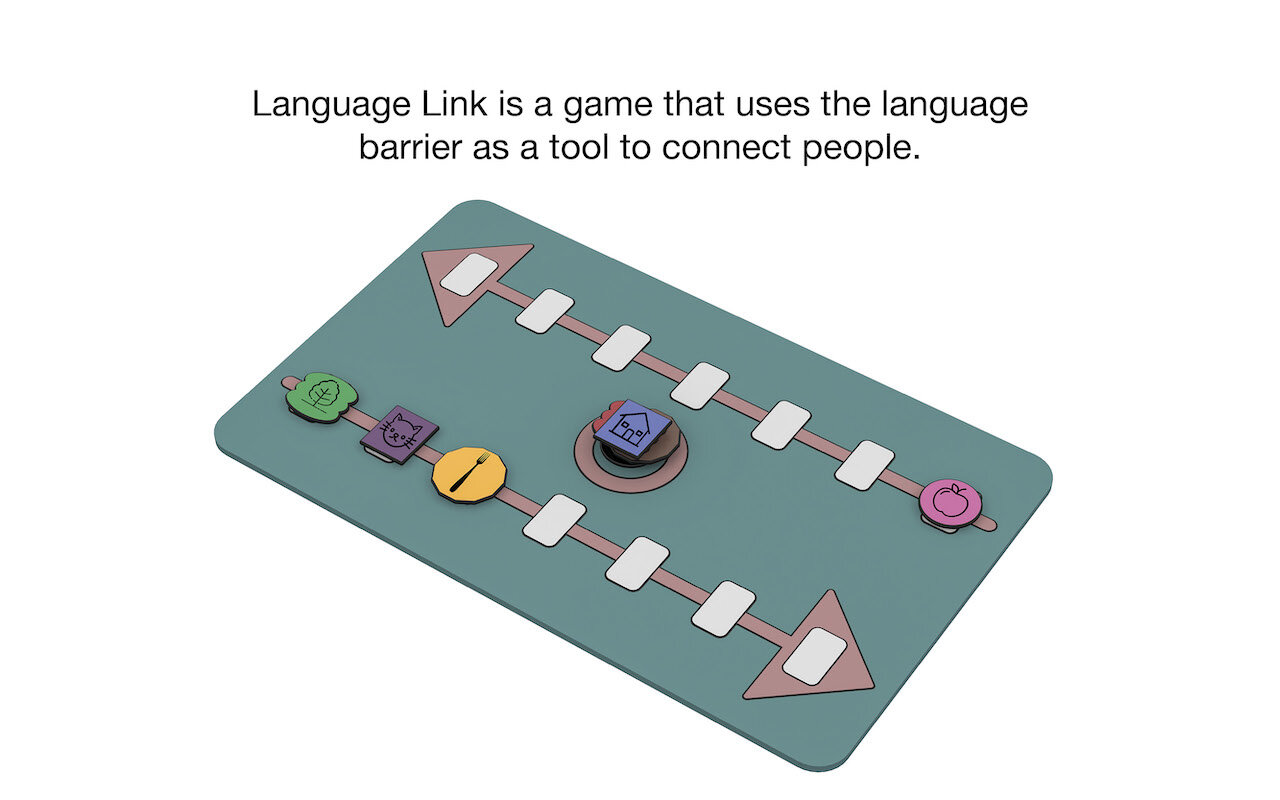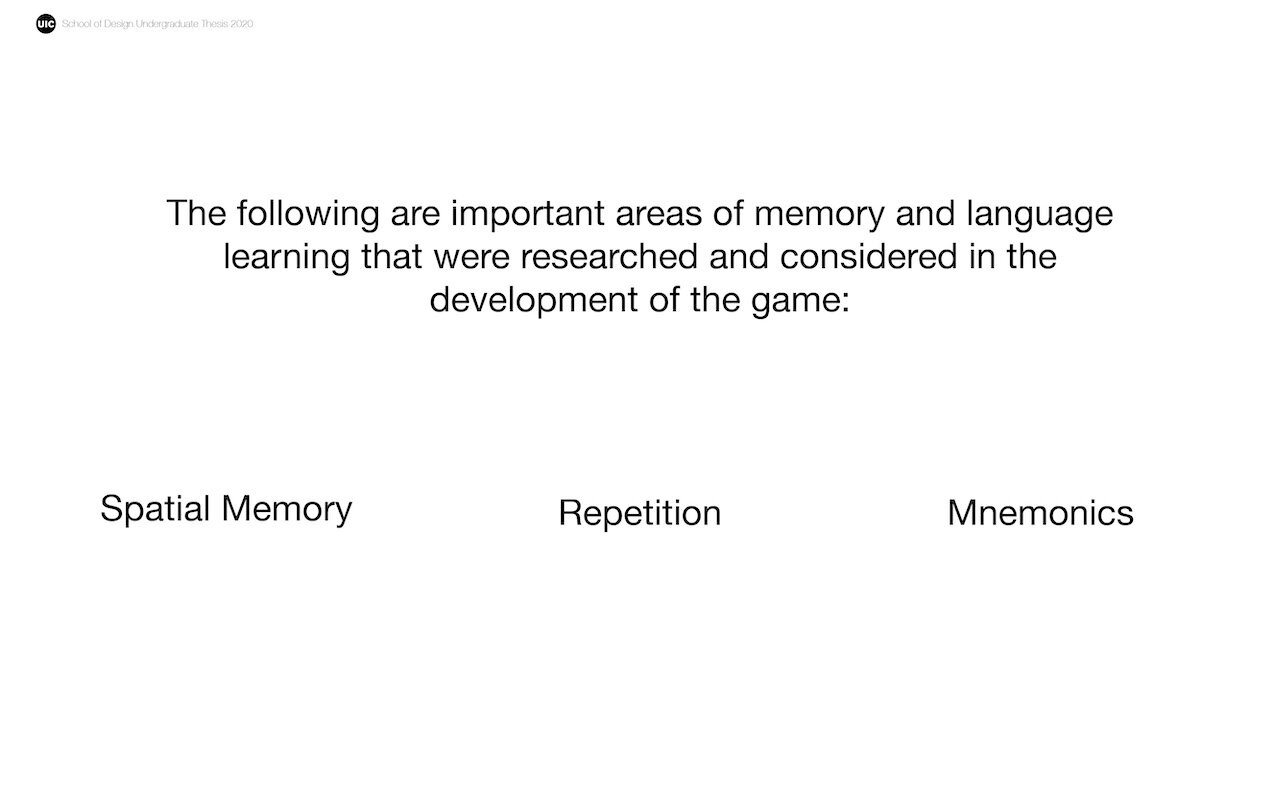Aryeh Goldsmith
Language Link
Language barriers can be very unpleasant to deal with. This is especially true during situations where people without a shared language are with each other for an extended period of time. Even more difficult is a situation where a relationship and communication are expected between the two people.
I found myself in this predicament many times while visiting my in-laws in Romania. They don’t speak English, and my knowledge of Romanian is limited. A few minutes of sitting in awkward silence is unpleasant and the unpleasantness seems to increase exponentially over time. In fact, research has shown that even just four seconds of silence can begin to produce stress and perhaps reflects our deep need to avoid social exclusion.
Language Link is a game developed to address the need for an activity to ease the tension between two people with a language barrier. It uses the difference in language as a tool for social connection. Firstly, it turns something that creates anxiety into something enjoyable. Secondly, it uses proven methods to successfully teach vocabulary. It would be frustrating for the players to connect over something that did not work well. Therefore, much research was done to provide successful memory retention.
Language Link uses mnemonics (relating one piece of information to another), repetition, and spatial memory. While the game is not a tool to become fluent in another language, it connects those with a language barrier and is incredibly successful at engraining the vocabulary learned during gameplay. The game is a good addition to other methods of language learning. The tools learned by playing the game can be implemented when furthering one’s language skills. Additionally, when players use words learned during gameplay, they mentally connect themselves to an enjoyable experience with the other person, therefore enforcing positive conditioning for future interactions.
Language barriers can be far more than just the inability to communicate. Silence within a conversation has been shown to cause anxiety in as little as four seconds in a study done at the University of Groningen. Awkward silence elicits feeling of social exclusion and rejection, while fluid conversation shows positive impacts on self-esteem.
The chances that we find ourselves in an uncomfortable situation due to language differences continues to grow. People are increasingly moving to different countries, traveling internationally, and relocating for work. This of course leads to the formation of relationships that would benefit from better communication or at least a way to deal with the social tension. When more importance is placed on a relationship, one can be more anxious when communication has broken down.
I have found myself many times in situations where awkward silence has led to feeling very tense and nervous. My in-laws who live in Romania, do not speak English and my knowledge of Romanian is very limited. Due to the important nature of our relationship, I try to spend as much time as I can with them when visiting, however, it is often very uncomfortable for all involved. It also adds pressure on my wife to be continuously present to help translate.
Language Link is an activity that connects two people that speak different languages and removes the anxiety of sitting in silence. This game not only gives two people the opportunity to actively do something together but also connects them in a meaningful way through the learning of the other person’s language. Therefore, that which is a negative aspect of the relationship, becomes a positive component of the game.
Spatial memory relates to one’s memory of their environment. Relating something to a space or environment helps in retention.
Repetition helps by solidifying neural connections between different parts of the brain.
Mnemonics work by connecting two pieces of information. Often it is between new information and information that is already strongly engrained.
In the example of “visual mnemonics,” one piece of engrained information (the knowledge of how a microphone looks) and new information (the person’s name) are connected. Relating the Mike to the microphone makes remembering his name far easier.
In the “verbal mnemonic” example, a phrase is memorized and related to other information. Memory retrieval of the order of operations is strengthened by connecting it to the phrase “please excuse my dear aunt sally.”
This example shows the use of spatial memory through a memory palace. Here the planets are mentally placed in various parts of the kitchen.
To win the game one needs to fill all of their seven Memory Boxes and for the other player to fail to do so. If there is tie and all spaces are full, the cards are removed and the game continues until one player fails. (removed cards still need to be remembered but without the aid of the board) The game begins with player 1 showing a picture to player 2. Player 2 then says the word in their own language.
Player 1 repeats the word.
Here the word is written phonetically with the dry-erase marker. Additionally, a mnemonic device is created. In this example, the word for apple in Korean, “sagwa,” is related to a similar sounding word/object, a Segway. (In playing with a Romanian, I had a vocabulary card for “boat.” In Romanian, boat is “barka.” My mnemonic drawing was a dog barking inside a boat)
The written clues are covered at the end of the turn and only later used if one fails to remember their vocabulary in future turns. Special attention was given to create differentiation between vocabulary words and make use of the concept of the memory palace. Therefore, the cards are varying shapes and colors and are placed in different sections on the board.
When the turn comes back to player 1, the previous word is repeated prior to taking a new card. The player has three tries to pronounce the previous word. Failure to remember a word, means no new card is taken and the player does not advance.
This step shows how repetition is used by the game to aid in memory retention.
The game was enjoyed by players and connected them using a difference in language as a positive tool. Furthermore, the game, though not a tool for complete language acquisition, showed great success in teaching vocabulary. The methods of learning in the game, can also be helpful for those seeking to further their language skills or overall memory. Importantly, when played in the situations like that of my in-laws and myself, the experience and the words learned may help to ease tension even after playing the game.



















